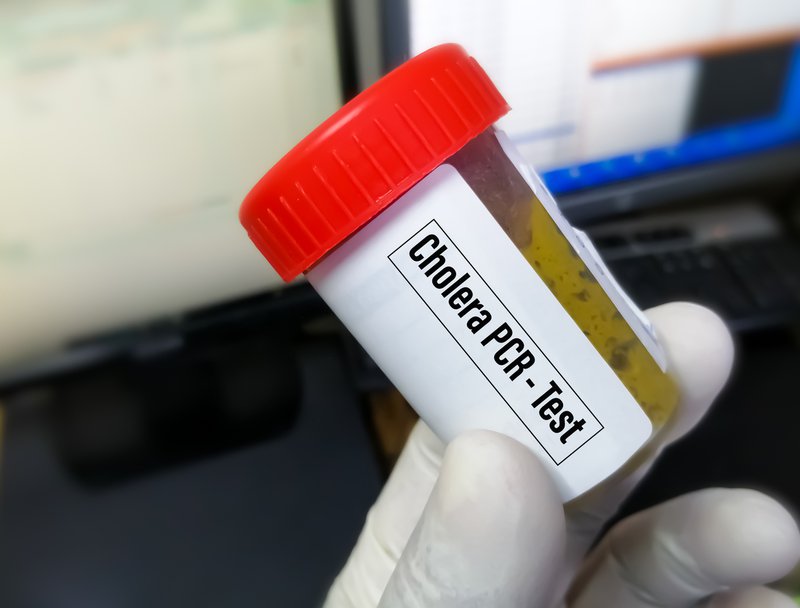Treat all patients with diarrhoea as suspected cholera cases - NICD
Updated | By Masechaba Sefularo
The National Institute for Communicable Diseases (NICD) has called on healthcare workers to treat all patients presenting with diarrhoea as suspected cholera cases until proven otherwise.

Healthcare providers are on high alert as the death toll from the cholera outbreak in Hammanskraal, north of Pretoria, reached 15.
According to the most recent update from the health department on Monday, there are 41 confirmed cases in the country.
Gauteng is the epicentre after 34 cases were reported in Hammanskraal alone.
Six cholera cases have been reported in the Free State, while authorities await the results of tests conducted on at least eight people whose causes of death are unknown.
During her presentation at a virtual webinar hosted by the health department on Tuesday, the NICD’s Dr Juno Thomas said it is concerning that South Africa now has indigenous cases after recording imported cases from Malawi in March.
“The indigenous cholera cases, who have had no link to an imported case, are those of major concern because it does mean that you have established local transmission. It means that it's very likely there are already many other cases that have not been identified.”
Thomas has urged healthcare workers to be more vigilant: “This has been one of the most major failings in this outbreak so far; is that healthcare workers have not been notifying suspected cases, and we’ve been relying, in most parts, on laboratory-confirmed alerts.”
Cholera is listed under the institution’s category one notifiable medical condition that requires immediate reporting to the department of health within 24 hours upon diagnosis.
In a statement released at the weekend, the Gauteng health department said by Sunday, 95 people from various parts of Hammanskraal had been treated at the Jubilee District Hospital for symptoms such as diarrhoea, stomach cramps, and nausea since 15 May 2023.
The cholera outbreak, which is determined through 10-20 laboratory-confirmed samples, was announced on Sunday.
READ: Cholera crisis: ActionSA approaches public protector, SAHRC
Meanwhile, Thomas warned that not all patients will experience the obvious symptoms but may still be able to pass on the infection.
“Not all patients who get infected with cholera will develop diarrhoea but are still infectious.”
Watery diarrhoea is the hallmark of cholera infection and is often accompanied by vomiting which leads to rapid dehydration and can kill within hours.
Members of the public who experience acute diarrhoea are advised to immediately mix and drink an oral rehydration solution (six level teaspoons of sugar and half a level teaspoon of sugar in one litre of water) while waiting to access medical care.
SIGNS AND SYMPTOMS OF CHOLERA
The incubation period (the period from when the person ingests cholera-contaminated water/food to when they first become ill) ranges from a few hours to five days (usually 2 - 3 days).
Most persons infected with cholera will have very mild illnesses or not feel ill at all. Mild cholera presents as a diarrhoeal illness which can’t easily be distinguished from other common causes of diarrhoea.
In its severe form, cholera typically presents as follows:
• Sudden onset of illness
• Diarrhoea which is profuse, painless and watery, with flecks of mucus in
the stool ("rice water" stools)
• Vomiting may occur, usually early in the illness
• Most persons don’t have fever, although children may develop a fever
• Dehydration occurs rapidly and if untreated can be fatal
(Source: NICD Outbreak Response Unit, Division of Public Health Surveillance and Response; Cholera Frequently Asked Questions; compiled February 2023)

Show's Stories
-
LISTEN: "I can't stand hearing about my friend's kids and husband"
How do you tell your friends the truth?
The Drive with Rob & Roz 53 seconds ago -
LOOK: Item from Titanic shipwreck sold for R27-million, breaks records
How much would you be willing to pay to own a piece of history?
The Drive with Rob & Roz 2 hours ago